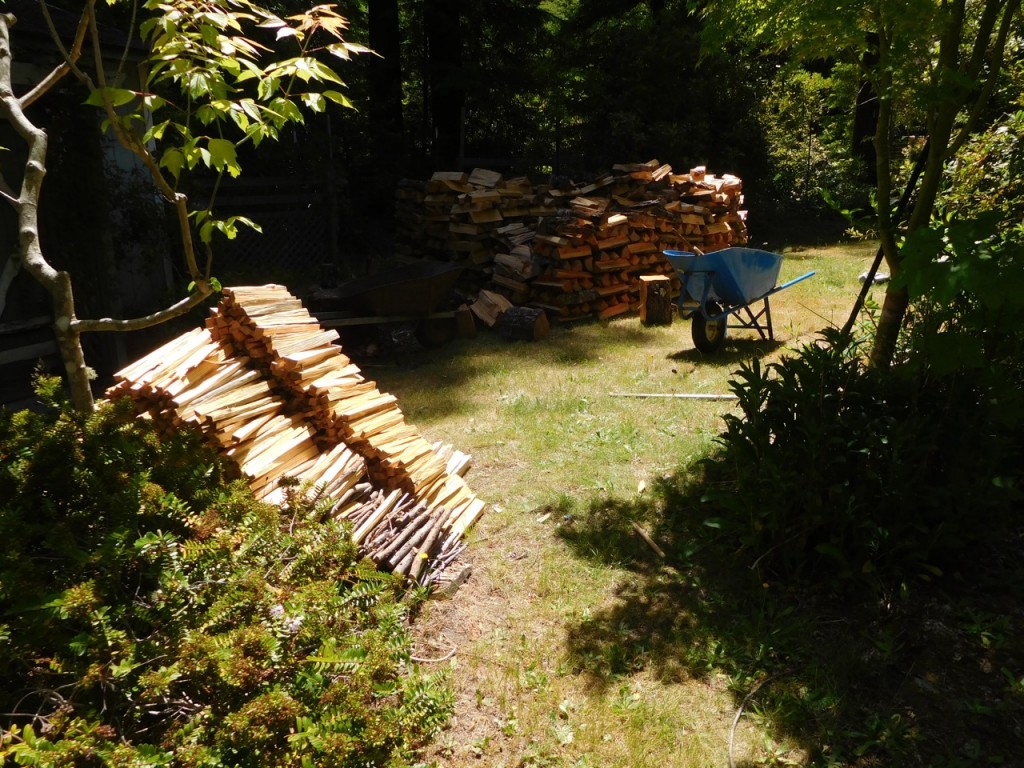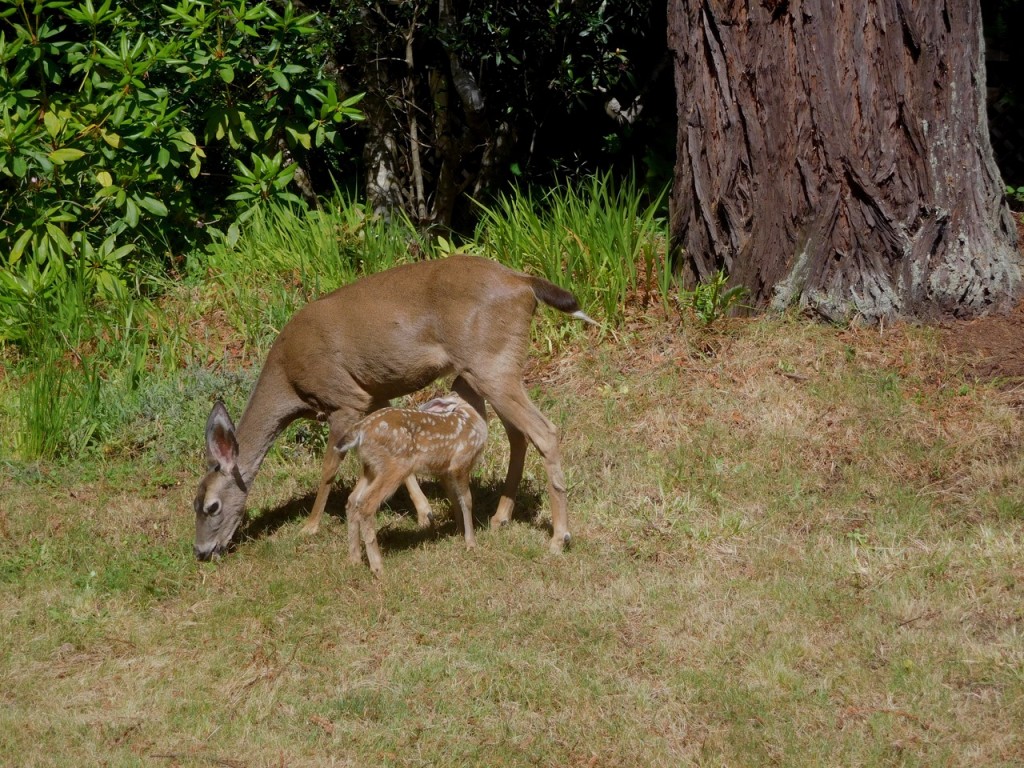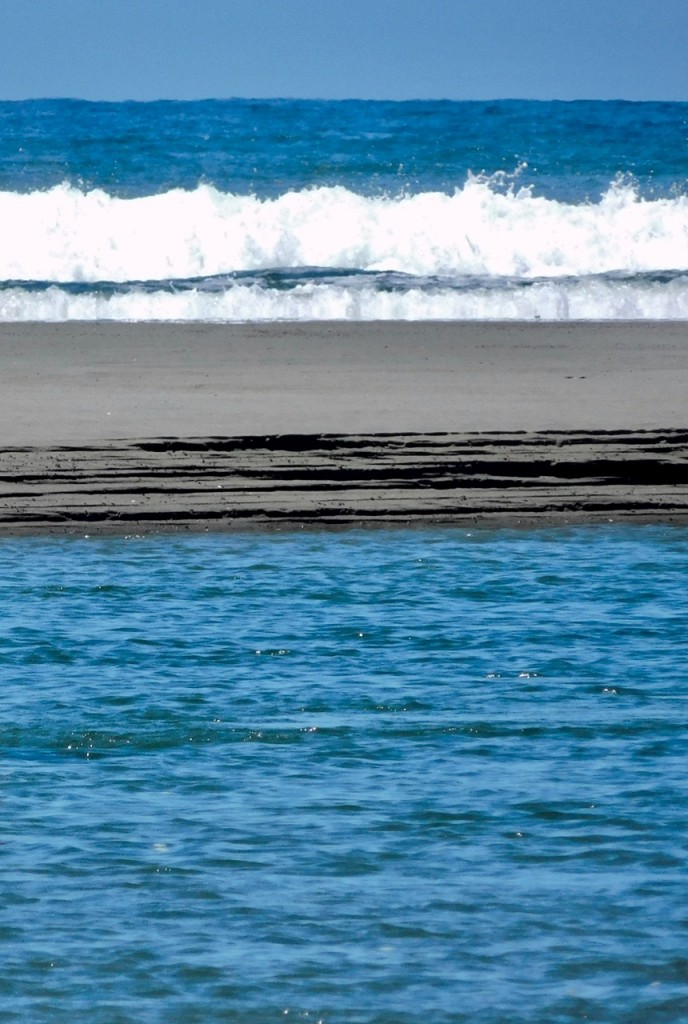
On a drizzly morning in late October, Obidiah the raven mystic and his seagull pal Marcus and ten of Marcus’s gull buddies flew north from Big River to a little rocky beach at the mouth of Jack Peters Creek. The tide was way out when they reached the beach where the creek was little more than a trickle for lack of rain.
They landed in a group at the south end of the beach and one of Marcus’s cronies opined, “Why was it again we left the easy living and soft sands of Big River Beach to come all the way to this sad excuse for a beach?”
“You lack imagination, Stefan,” retorted Marcus, turning over a baseball-sized stone and exposing a scrumptious little crab. “Not only do crustaceans abound here, but yonder is a shallow pool wherein are trapped several dozen delectable smelt who neither went far enough out with the tide nor far enough up the creek while the going was good. Hence they are sitting ducks, so to speak, for gulls such as we.”
Inspired by Marcus’s preface, the gulls flew en masse to the little pool to dine on the many fish trapped therein. Obidiah followed the gulls, and being less aquatic than they, did not take part in the fishing.
Standing apart from the feasting gulls, Obidiah heard the unmistakable creaking of fast-flapping raven wings and looked upstream as a trio of glossy black Jack Peters Creek raven gals emerged from the forest and landed a short distance from Obidiah.
“You’re no Jack Peters Creek raven,” said the largest of the three. “You migrating? Well you better migrate yourself down the coast pronto before our big boys get here and kick your butt.”
Obidiah read the mind of this largest of the three as well as the mind of the next largest, and was disappointed to find both raven gals were profoundly afraid of him, emotionally unreceptive, and not the brightest of passerines. But when he tried to read the mind of the third, a comely gal with four snowy white tail feathers, he found her mind closed to him.
“I’m Obidah,” he said, mesmerized by the raven gal with the white tail feathers. “Who are you?”
“Watch out, Magdalena,” cackled the largest gal raven. “He’s got the hots for you.”
“Better tell him to shove off before he gets hurt,” said the mid-sized gal. “The big boys will show him no mercy.”
But Magdalena spoke not a word as she gazed steadfastly at Obidiah.
“Say,” said the second largest of the gal ravens, squinting suspiciously at Obidiah. “You wouldn’t happen to be a Cummings Lane raven, would you? Because if you are, our big boys will do more than kick your butt, they’ll tear your eyes out.”
Obidiah was about to say he was hoping for a more peaceful outcome to his visit, when Magdalena spoke to him clairvoyantly, her voice sweet music to his psyche.
“Why have you come here?” she asked, her tone suggesting concern for his safety. “My sisters speak the truth about what the big boys will try to do to you. They are all brutal dunces and cannot be reasoned with.”
“I came here,” said Obidiah, replying clairvoyantly, “because I’m in search of a mate. I’m claiming some land between Cummings Lane raven territory and Jack Peters Creek raven territory and hoping to meet a gal raven who will love the roost I’ve found and love me, too, once she gets to know me and finds out what a thoughtful, capable, loyal partner I’ll be.”
“But why did you come here?” sent Magdalena, glancing furtively up the creek. “Why not seek a mate among your own kind?”
“Because the gal ravens where I come from are ruled by fear,” sent Obidiah, taking a few steps toward her. “And I’m hoping to meet someone ruled by love.”
Before Magdalena could reply, four large male Jack Peters Creek ravens flew swiftly out of the forest and attacked Obidiah.
Obidiah took wing, flying for his life, and just as those four brutal dunces were about to overtake Obidiah, Marcus and his ten pals rose into the air, a cloud of gulls, and battered those four ravens with their powerful wings until the brutal dunces fled back into the forest and Obidiah was able to escape unharmed.
*

Back on Big River Beach, Marcus and his buddies regaled the large gathering of gulls with wildly exaggerated reports of their triumph over the Jack Peters Creek ravens, while Obidiah sat on a nearby driftwood log recovering from his close call and reviewing his clairvoyant conversation with the enchanting Magdalena, she of the four white tail feathers.
Seeing Obidiah in the throes of emotional turmoil, Marcus excused himself from the hubbub on the sand bar and joined Obidiah on the driftwood log.
“Thinking about that beautiful Jack Peters Creek raven gal, aren’t you?” said Marcus, winking at his non-gull buddy.
“You thought she was beautiful, too?” said Obidiah, smiling dreamily at Marcus. “I didn’t know gulls found individuals of other species anything other than individuals of other species.”
“On rare occasions,” said Marcus, thinking back over his life, “individuals of other species have struck me as beautiful or ugly or strange or funny or cute. Certain puppy dogs, for instance, are undeniably cute. And that raven gal with the snow-white tail feathers reminiscent of snow-white gull feathers was an amalgam of beautiful and cute and mysterious, too. Ergo, I can see why you’re in a tizzy.”
“And she can communicate clairvoyantly,” said Obidiah, excitedly. “She’s the only raven I’ve ever met who can. Other than yours truly.”
“I could only guess her thoughts,” said Marcus, bouncing his eyes, “but the way she was looking at you… ay caramba.”
“But how will I ever get to see her again?” asked Obidiah, mournfully. “Those Jack Peters Creek big boys will kill me if I ever venture into their territory.”
“You want my advice?” asked Marcus, still high from battering those Jack Peters Creek ravens and saving his friend. “Go secure the far flung roost you love. Take the road less travelled. Cut the seemingly irresolvable knot of doubt. Gather a trove of sticks for a nest you’ll build one day with your sweetheart and trust in the power of love.”
“You’re a romantic,” said Obidiah, chuckling. “Who knew?”
“I’m a sea gull living at the mouth of a bountiful river in paradise,” said Marcus, admiring the eternal collision of river and ocean. “Of course I’m a romantic.”
*
So Obidiah began spending a few hours every day in his new roost in the giant gnarly old redwood named Tree, exploring his new domain, and gathering excellent sticks for making a big comfy nest.
*

Then it was Thursday again. Had it only been a week since Obidiah communed clairvoyantly with Isadora the red-haired human at Big River Beach and saw into her future and helped her escape her terrible marriage? Yes. Only a week.
So Obidiah began his Thursday by flying down to Big River Beach and meeting Isadora and her dog Groucho at the usual big driftwood log. And while Groucho wandered about, sniffing and pissing, Obidiah alighted on the log a few feet from Isadora and sent, “You’re looking radiant today. Love the purple coat. What news?”
“Oh Obidiah, I am so glad Jeff is gone,” she sent, smiling at him. “So glad. And you were right. He took almost everything in the house and the garage. So now I’m slowly replacing the things I need. Kitchen table, bed, bedding, things to cook with, plates, silverware, mugs. He never cooked, but he took everything in the kitchen. He even took the food from the refrigerator and emptied the wine cellar. But he couldn’t get my guitar and violin and a few other precious things I moved to my friend’s house before he came.”
“Excellent,” sent Obidiah, proud of Isadora. “Now tell me, who is Thomas?”
Isadora blushed. “A dear old friend. We played music together before I married Jeff and before Thomas married Andrea. Why do you ask?”
“Thomas will cut down a tree for you,” said Obidiah, seeing Isadora’s future as if he was watching a well-made movie. “The big pine that’s threatening to fall on your house. After the tree is down and you learn Thomas is no longer married, you will invite him for supper.”
“Really?” sent Isadora, gaping at Obidiah. “And then what happens?”
“That’s as far into your future as I can see today,” said Obidiah, though he could actually see a little further. “Now remember, that pine tree might fall any day now, so call Thomas soon. Today would be a fine day to call him.”
“I will,” she sent, beaming at Obidiah. “I brought you more chicken morsels cooked just the way you like them.”
“Wonderful,” sent Obidiah, his eyes growing wide as Isadora took a bulging plastic bag out of her pocket. “Would you mind leaving them in the bag so I can more easily transport them to my new digs?”
“Certainly,” sent Isadora, placing the bag on the log between them. “I’m so grateful to you.”
“As I am grateful to you,” sent Obidiah, nodding graciously.
“Next week?” sent Isadora, getting up from the log. “Same time, same log?”
“Yes,” sent Obidiah, grasping the bulging bag with his talons and flying away into the wild blue yonder.
*
His heart pounding from the exertion of flying all those miles with the heavy bag of delicious chicken morsels, Obidiah landed in the hollow high up in the trunk of Tree, opened the bag, and ate one of Isadora’s morsels.
“Oh yum,” said Obidiah, relishing the perfectly cooked chicken and thinking I wish I could share this feast with Magdalena.
At which moment, a few miles away in a roost on the banks of Jack Peters Creek, Magdalena heard Obidiah’s wish and set out to find him.











